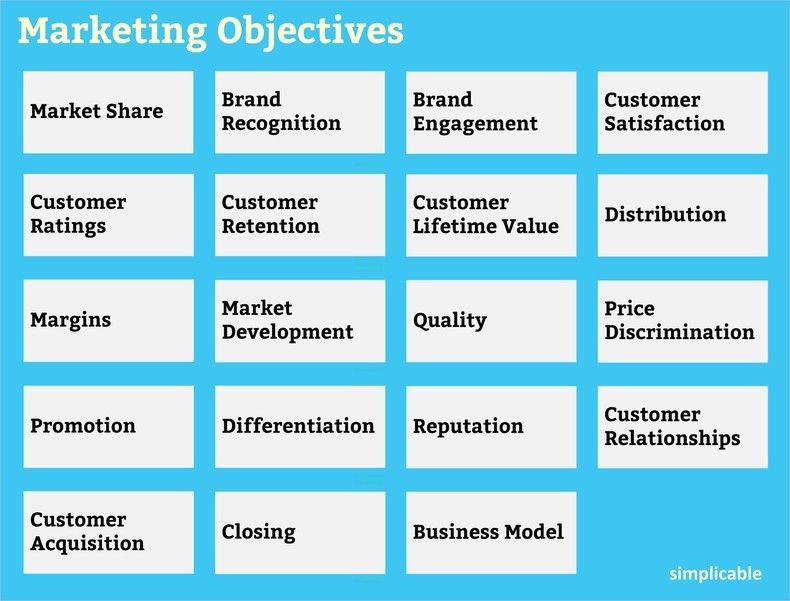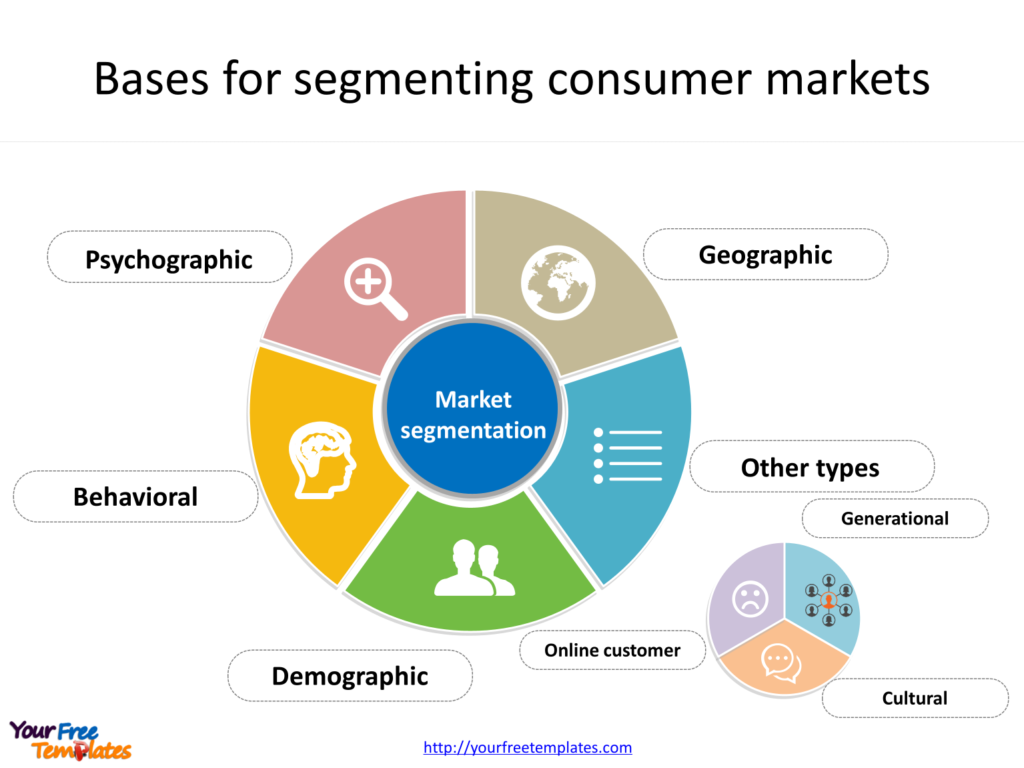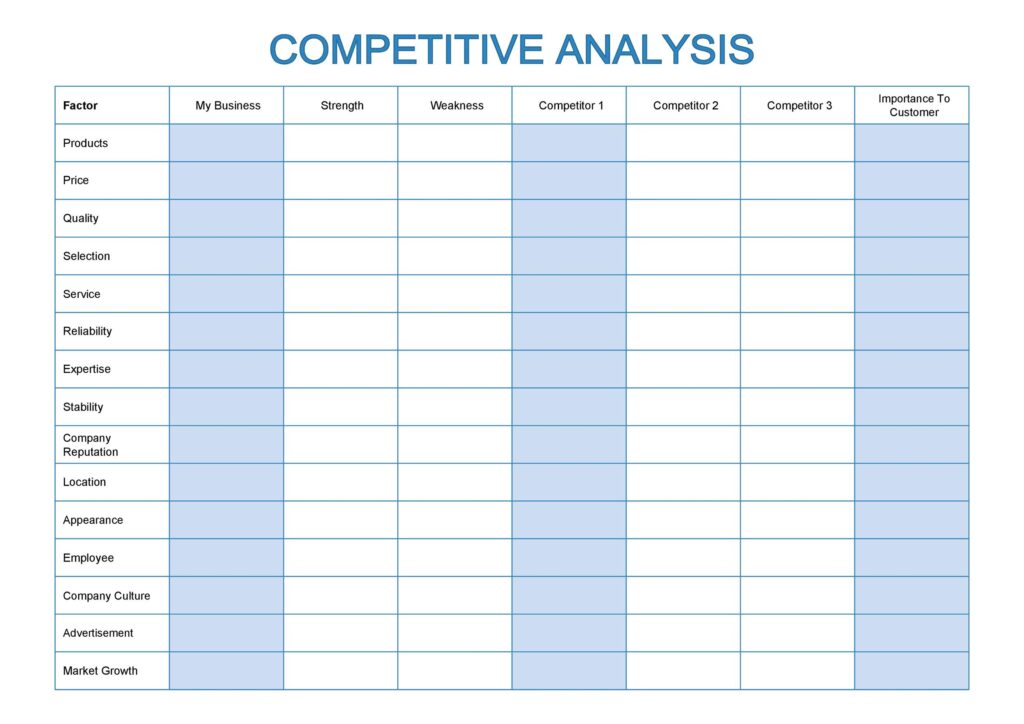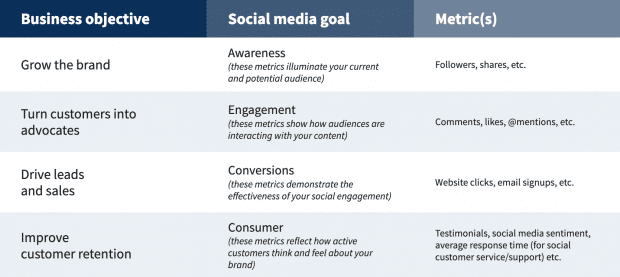Event marketing is a vital component for the success of any event. However, creating an event marketing plan might be a daunting process and it usually takes a lot of time, which, event management firms prefer to spend on organizing events instead. That’s why we brought you in this article — our hand-vetted event marketing plan template — that you can follow to craft the perfect event marketing strategy.
Event marketing plan template sections:
Below are the most important sections that you should have in your marketing plan. We’ll explore what each section is about later in the article.
1. Event management company information
2. Goals & objectives
3. Market research and targeted segment
4. Competitive Analysis
5. Marketing channels
6. Define KPIs
1. Event management company information
What is your event about, and how does it relate to your targeted segment?
As much as this question might seem ambiguous and sometimes obvious to event management firms, several companies fail to properly answer the question. For instance, if your answer is providing X value to attendees, then it’s the wrong answer. Questions about your event shouldn’t be a one-word answer. Instead, it should answer why your event is better than your competitors, and how attendees will make the most out of it.
Additionally, your answers will define your future statements and communication with your potential clients. The name of your event, slogans, and descriptions that you’ll use in your marketing will be inspired by answers to these questions.
Answering as many questions as possible about your event will define your value proposition.
2. Goals & objectives
Define your goals, and how you’ll achieve them. After defining your goals and objectives, you’ll have to answer questions on how to explore them. For instance, if your goal is bringing more attendees e.g., then what marketing channel will you choose?
How will you know which marketing channel has the most Return on Investment (ROI) and how will you make your ads’ cost per acquisition lower?
What are long-term vs. short-term goals? If you’re planning to bring X number of attendees to an event then it’s a short-term goal. On the other hand, if you want to turn these attendees into loyal recurring customers, then what’s your long-term plan for that objective?
From there, you should run a SWOT analysis to better define your long and short-term plans. SWOT is an acronym for Strengths, Weaknesses, Opportunities, and Threats. Knowing your strengths and weaknesses will make your projection more realistic and attainable. Similarly, if your weaknesses include lack of finance for example, then your financial forecasting for marketing costs will be adapted accordingly.
Meanwhile, if your strengths include a very good design team, then you can adapt your marketing plan to promote the event through eye-catching banners and posters. Similarly, opportunities and threats in the events market should be analyzed so that you can lower the risk of losing money or potential attendees.
See sample below:

Marketing Objectives sample. Source: Simplicable
3. Market research and targeted segment
After defining your goals and objectives, one important question will appear: who “exactly” are you promoting your event to? Who is that perfect attendee who’ll definitely buy your event tickets? The perfect clients, also known as the “targeted segment” can’t be defined unless you run a market research.
For instance, doing a competitive analysis and studying your competition and event management companies that organize events similar to yours will enable you to tell on who can be a perfect client for your event.
Let’s suppose your event is about traveling amid the Covid-19 pandemic lockdowns. Will your perfect client be multi-generational family travelers or millennials? What is the average age, interests, and budget of your targeted segment, and what are their favorite destinations?
Taking into account all the preferences and information about your targeted segment will lead to a better-performing marketing strategy.

Market segmentation sample in event marketing plan template
4. Competitive Analysis
After defining your goals, targeted segment, and long-term vs. short-term marketing projection, you’ll have an idea of how you’ll position yourself in the market. However, taking into consideration your competitors might bring more insights that you could have forgotten in the marketing strategy.
For example, your social media promotion strategy can seem effective at first, but after running a competitive analysis, you’ll notice what your competitors are doing better. Competitive analysis includes researching your competitors’ price, products, quality, reviews, growth, market share, and more.
Below is a template for competitive analysis:

Competitive Analysis template by Smartsheet
5. Marketing channels
Great, you now know enough about your event, target customers, event market, and competition. From here, you’ll have to explore different marketing channels that you’ll be using to promote your event. Facebook, Instagram, YouTube, and TikTok should definitely be on your marketing channels list that you’ll use.
Nonetheless, after defining marketing channels, you’ll have to set goals for each. On one hand, you can use Facebook events to raise awareness about your event and convert leads. On the other hand, you can use YouTube to share your old successful events and evoke social proof effects.
See the template below:

Social media strategy goals template. Source: HootSuite
6. Key Performance Indicators & Measurements
Key Performance Indicators (KPIs) are measurable values that marketers use to follow up with marketing objectives. If your goal is to get 100 attendees then how many people should social media posts reach? Let’s suppose you ran an ad on Facebook and you want to measure how many people were converted from the ad, how many clicked on the ad but didn’t buy, and where you’re losing potential attendees the most?
All of this can be done through key performance indicators, and as a part of your marketing efforts, you should define KPIs and work on attaining them. Furthermore, by attaining KPIs, you’ll consequently attain your major marketing objectives.
In conclusion, you probably noticed in this event marketing plan template that an event marketing plan is mostly about answering different questions that will pop-up in your marketing strategy journey. Your job as an event manager is to ask the right questions and find the perfect answers for each question independently. Each marketing plan will have trials and errors which will eventually lead to developing your event marketing plan every single time.




